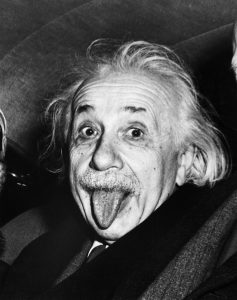The end of standardization. Or is it?
In the 1960s we had a couple of television channels, everyone pretty much had the same type of breakfast and dinner. and we all had very similar telephones. Generally there was much less variety than there is today. Thousands of channels and streaming services from all over the world, a vast variety of foods and a completely unique phone for each of us.Henry Ford characterized that period over a hundred years ago with the statement: “A customer can have a car painted any color he wants as long as it’s black”.
Standardization provided many benefits: rapid production of large quantities at a low price. Human labor was partly standardized as well and was classified as resources (Human Resources is a typical term that refers to that period. Henri Mintzberg once suggested that we are human beings and that a Human Relations department would be more appropriate). Charlie Chaplin’s “Modern Times” (1936), we see people degenerate to mindless sheeps when they are treated like machines. Standardizing people does not lead to good effects.

But there’s a part of us that loves. also love efficiency and therefore standardization. After all, we are biological beings and as such, we’re always looking to save energy. Standardization, routine, habits, any type of convenience will help us to do that. That’s why habits usually beat novelty. It just takes up a bit too much energy. Until our situation changes. Then we will have to deviate from the standard norm.
Change is a given, because we are not just biological beings. We are biological beings with imagination. Our imagination enables us to travel through time and space and muse about the past or dream about the future. We can fantasize about being in other situations. In the process we separate ourselves from the here and now. We can compare ideas of how it could be or used to be or how others do it with our current situation. Both positive and negative fantasies. Interaction causes all change and this particular interaction causes emotions about our current situation. Which in turn causes impulses to change. We can ignore it for a while, but at some point we will take action and change. Change (and not just biological) is therefore an integral part of human nature.
True to your biological nature and to yourself
We must serve both sides of ourselves to stay balanced. Too much routine will turn us into zombies and have consequences for our relationships and the work we do. Too much creativity and deviation from the ordinary exhausts us because of our biological nature. A good guide to deal with this might be the smartphone I just mentioned. The hardware, the logic of operation, the user interface and the apps that belong to the operating system are standardized to a great extent. On top of that, we can become creative and select apps to our heart’s content and use them as we please. The guideline we keep for ourselves in making choices is whether we can benefit from it in our lives. We research, try out, play with it until it is no longer useful or it becomes one of our go-to apps.
You can use the same kind of approach for your work, relationships, hobbies and other activities to stay in balance. Build routine structures, train habits to create a foundation. Just like is the case with your smartphone, choose a number of activities that support the rest of your life, such as administration, cleaning, part of your work, sleep, food and exercise. Standardize them and execute without thinking.
That solid foundation allows you to incorporate creative elements for things you feel are really important. You will have space and energy to deviate from the beaten paths and play in order to raise the quality of life. Pick a few things every week within that basic rhythm to surprise yourself and others, put a creative twist on something or create a completely new thing. Over the course of a few months you will feel rested because you stayed true to your biological nature, yet fulfilled because you satisfied your creative nature as well.
George Parker
+31 6 5110 8415
PS It’s a well known fact that Einstein standardized his wardrobe because it wasn’t important enough to waste brainpower on.


